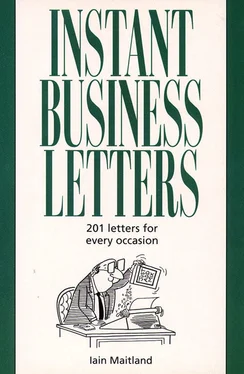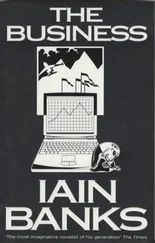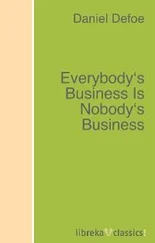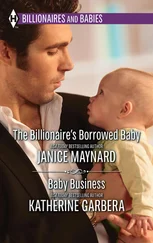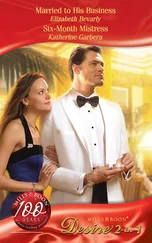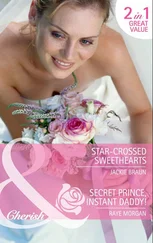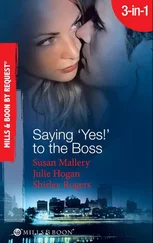Make sure your signature is legible – a squiggle or scrawl creates the impression that you are too busy to be interested in the letter, and therefore its recipient. Allow approximately five or six lines for the signature, and then type or write your name, followed by your job title if appropriate, one line beneath that.
You may wish to indicate that an item (or items) is attached to the letter, or enclosed in the envelope – a sales catalogue, a draft contract or an invoice, as examples. If so, put ‘Enclosure’, ‘Enc’, ‘Enclosures’ or ‘Encs’, as appropriate, two lines below the last entry.
Should you want to inform the reader of the recipient(s) of a copy (or copies) of the letter, you can put ‘Copy: John Brownlow’, ‘Copy: John Brownlow, accountant’ or ‘Copies: John Brownlow, accountant, Sophie Henderson, solicitor’, as relevant. Place this two lines beneath the previous entry.
Familiar with the planning, appearance and layout of a letter, you can then set about polishing that draft in order to produce a final version of the letter, ready for posting. You should consider these areas:
• format
• language
• tone
• accuracy.
Your letter can be laid out in one of three basic formats: blocked, semi-blocked and indented. The blocked format has all entries tight against the left-hand margin, as shown in Letter 1.2. The semi-blocked format sets the references and date to the right margin for filing and retrieval purposes, with the remaining entries placed against the left margin. Letter 1.3 illustrates this. The indented format follows the same layout as either of the other two, but indents each paragraph by five or six spaces. This can be seen in Letter 1.4 . Not surprisingly, the format you choose depends upon your firm’s preference – these days, companies often blend them together to develop an individual house style.
As a general rule, the letter must be clear and easy to understand. Use language to suit the recipient. Obviously, it is inappropriate to include technical expressions when writing to a member of the public. Similarly, it is unwise to incorporate simplified language when addressing a specialist in the field. In both instances, the recipients will feel alienated. Try to use short words, phrases and sentences whenever you can, as these tend to be unambiguous and are less likely to be misinterpreted. Steer away from in-house jargon, slang and local or regional expressions, which increase the risks of misunderstandings.
Your letter should also be concise, regardless of the subject. For example, the reader wants a straightforward apology, not a rambling explanation of the complexities of the matter. He or she requires an acceptance or a rejection of a request for a cash discount, not an aimless discussion on the respective pros and cons of such a policy. Keep that letter short and direct. Check through your draft, constantly asking yourself whether the statements are all relevant to the recipient. If not, eliminate them. Set out the rest of the points as crisply as you can. Avoid repeating yourself. State what you have to, move on and finish.
Whatever the letter, try to project some personality into it. Attempt to be courteous and friendly even if you are writing a difficult letter, such as one which is demanding money. It costs nothing to be polite and to say ‘please’, ‘thank you’ and ‘sorry’, as appropriate. It also projects a dignified and positive image of you and your firm. Be sincere as well, attempting to write naturally in your own words. Don’t be reluctant to add personal touches when relevant, such as ‘Kind regards’ or ‘With good wishes’. Avoid giving the reader the impression that this is just another letter with little or no thought behind it – it isn’t!
Once the final version of the letter has been written or typed, it must be checked thoroughly again. The spelling and punctuation have to be perfect. An error can distract the recipient from your message, and does nothing to impress him or her about your expertise or standards of quality. A typographical mistake, for example, can not only make you look foolish but could be misleading as well: typing ‘right’ rather than ‘eight’ in the sentence ‘We want eight of these products’ could cause considerable confusion!
Dear Mr Tate
We’re sorry that the pushchairs delivered to you on 17 September were damaged. We think this must have happened on the van as our goods are always checked in the warehouse before being sent off.
We’re pleased to agree to your suggestion that we deliver replacement goods and collect and credit the damaged ones at the same time, which seems the fairest and quickest way of resolving the matter. Therefore we’ve instructed our despatch department and the carriers to do this for you.
Please accept our apologies for the trouble caused to you by this.
Yours sincerely
Rajesh Munglani
Sales Manager
Our ref: HEM/TL Your ref: RJD/BC
24 August 1996
Mr R J Dhalival
Mossman and Sons
20 – 26 Windmill Road
Littleton
Sussex
RH17 OYS
Dear Mr Dhalival
Re: Wayliner Mark II
Thank you for your catalogue and price list.
We enclose an order for your attention and ask you to deliver these goods to us at your earliest convenience.
We would be pleased to see your representative on a regular basis to discuss new lines and related matters. We look forward to his call.
Yours sincerely
Harold Mitchell
Proprietor
Enclosure
Copy: Rachel Cohen
1.3: The semi-blocked format
Our ref: JP/MA
12 September 1996
Debbie Taylor
Smart Moves
2–6 Brightwell Road
Esbury
Yorkshire
IP10 7NG
Dear Debbie
I write to introduce you to David Cooke who worked with me at Kaleidoscope for 12 years.
An innovative and hard working person, David is currently working on a new exercise cycle which may be of interest to you and will be contacting you in due course to arrange a meeting.
I am sure it would be very worthwhile for you to agree to see him.
Kind regards
Jacquie Phillips
Product Development Manager
Our ref: DC/FT
18 October 1996
Mrs E Simpson
56 Amberley Crescent
Morden-on-Sea
Norfolk
NA12 4FR
Dear Mrs Simpson
Many thanks indeed for attending an interview with regard to our vacancy for a manager at our Todbury plant.
We have given your application careful consideration but regret to say that you have not been successful on this occasion.
We are sorry if this is a disappointment but hope you succeed in finding a suitable position soon.
Yours sincerely
Esus Tella
Partner
1.5: A final version of a letter
Our ref: RM/TM
Your ref: TT/FT
18 September 1996
Mr A P Tate
Babyland
20 Rydens Road
Tinheath
Warwickshire
CV17 ONB
Dear Mr Tate
We very much regret that the pushchairs delivered to you on 17 September were damaged. We can only assume that this must have occurred in transit as our goods are always inspected in our warehouse before being packed and despatched.
Читать дальше
